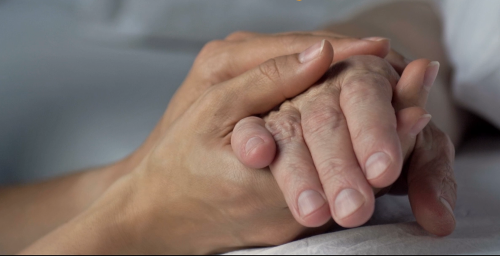In the context of the Second Reading debate in the British House of Commons over Kim Leadbeater MP’s Terminally Ill Adults (End of Life) Bill, the Anscombe Centre has published a new paper by its Director, Professor David Albert Jones, showing that the evidence from multiple jurisdictions that have introduced ‘assisted dying’ – euthanasia and/or assisted suicide (EAS) – is that it has a detrimental effect on palliative care provision.
The Anscombe Bioethics Centre, a Catholic institute for the study of medical ethics, was founded in London in 1977 and is one of the oldest bioethics research centres in the world. The Centre has been providing bioethical advice and education across the islands of Ireland and Britain since that time. It exists not only to inform the Catholic community but to serve the common good. The Centre engages in scholarly dialogue with academics and practitioners of different backgrounds, contributes to public debates and consultations, and runs educational programmes for Catholics, for healthcare professionals, and for the general public.
Professor Jones’ paper, Evidence of Harm – Assessing the Impact of Assisted Dying/Assisted Suicide on Palliative Care, is a response to an erroneous conclusion by the House of Commons Health and Social Care Committee 2024 Report on Assisted Dying/Assisted Suicide in that the Committee’s report states that it “did not see any indications of palliative and end-of-life care deteriorating in quality or provision following the introduction of AD/AS; indeed the introduction of AD/AS has been linked with an improvement in palliative care in several jurisdictions.”
Professor Jones points out that this conclusion is based not on a comprehensive review of the literature on palliative care and the effects of EAS on that sector of healthcare, rather on selective evidence that the Committee received from respondents which was variously irrelevant, outdated, or speculative. Professor Jones’ more complete review of better and more recent evidence is that variously:
- Palliative and end-of-life care deteriorates in quality and provision following the introduction of EAS, with a negative impact on some healthcare professionals; and,
- Palliative care is not improving as quickly in jurisdictions with EAS as it is in jurisdictions without EAS.
Professor Jones said, “These realities are profoundly important for MPs’ consideration as they deliberate on whether to introduce physician involvement in enabling the suicide of terminally-ill patients into UK law and medical practice. The House of Commons Select Committee did not see evidence to confirm the fears voiced by palliative care associations about a change in the law. However, a fuller scrutiny, including of more recent data, fully vindicates those concerns. What is often called ‘assisted dying’ – that is, euthanasia or assisted suicide – can have a seriously adverse impact on that which is true assistance in dying: palliative care. In the United Kingdom, where we pioneered the hospice movement, this is world-leading. It would be extreme folly to jeopardise what has been an international beacon of excellence through insufficient consideration of the danger of proposed legislation.”
For more information, see the Anscombe Centre’s full Guide on ‘Assisted Dying’ (euthanasia and assisted suicide), which includes a guide to the latest evidence concerning EAS internationally, the Centre’s series of briefing papers on EAS since 2021 of which the above paper is the latest, and videos on subjects relating to EAS.
ENDS


